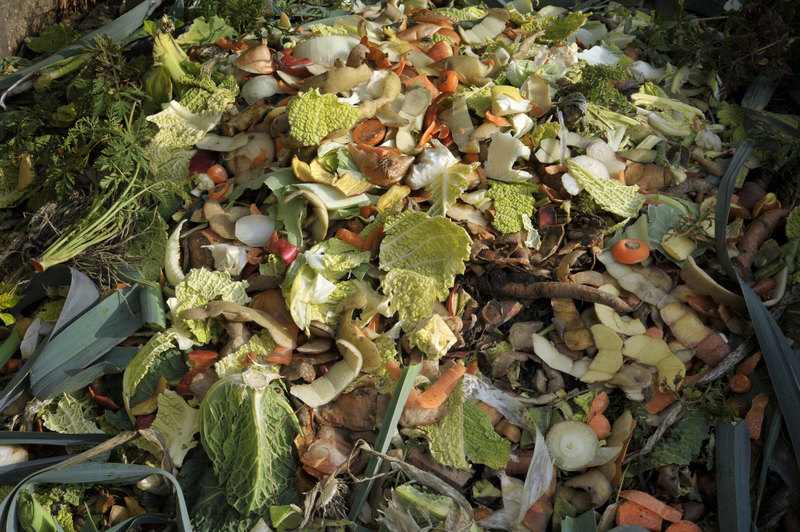Effective Tips for Enhancing Your Recycling Habits
Recycling is a core component of sustainable living, benefiting both the planet and your community. While many of us are familiar with tossing bottles and cans into recycling bins, improving your recycling habits can have an even greater impact. This comprehensive guide will offer insightful, actionable tips for enhancing your recycling routines and truly making a difference.
Why It's Important to Increase Your Recycling Efforts
The world generates billions of tons of waste each year, much of which ends up in landfills or the natural environment. Enhanced recycling efforts:
- Conserve natural resources
- Reduce the demand for raw materials
- Decrease pollution and greenhouse gas emissions
- Save energy
- Support the circular economy
By refining how you approach recycling at home, work, and in your community, you're part of a global movement toward a healthier planet.

Top Strategies to Enhance Your Recycling Habits
1. Educate Yourself About Local Recycling Rules
Every municipality has distinct guidelines for what can and cannot be recycled. To improve your recycling habits, start with learning your city's acceptable materials list.
- Check your city's website: Most local governments provide downloadable recycling guides.
- Notice collection days: Incorrectly sorted or late recycling can be missed.
- Be aware of caps and lids: Some cities require these to be removed.
Being well-informed helps prevent contamination and increases the effectiveness of your recycling practices.
2. Rinse and Clean Recyclables Thoroughly
Food residue and liquids can contaminate an entire batch of recyclables, leading to disposal rather than reuse. Make sure to rinse cans, bottles, and containers before putting them in the bin.
- Use minimal water quickly
- Shake out excess liquids
- Let containers dry if possible
A little effort preserves the value of other recyclables and supports a cleaner environment.
3. Avoid Wish-Cycling
Wish-cycling is when recyclers optimistically place questionable items in the bin hoping they'll be accepted. Unfortunately, this can do more harm than good. Only recycle verified items and dispose of the rest responsibly.
- Follow the numbers: Recycle plastics numbered 1 and 2, unless your municipality says otherwise.
- No plastic bags, styrofoam, or greasy food boxes unless specified.
- Avoid recycling hazardous materials in curbside bins.
4. Sort at the Source
Create separate, clearly marked bins for paper, plastics, glass, and metals in your home or office. This can boost your recycling efficiency and prevent cross-contamination.
- Color code bins for easy identification.
- Educate household and coworkers on sorting rules.
- Place informational stickers near bins for quick reference.
A well-organized recycling station encourages active participation from everyone in your space.
5. Reduce Before You Recycle
The first step in the "Reduce, Reuse, Recycle" hierarchy is always to reduce. Limiting your consumption naturally leads to less to recycle and less waste overall.
- Buy in bulk to reduce packaging waste.
- Choose products with minimal or recyclable packaging.
- Invest in durable, reusable goods.
Less waste means easier recycling and a lighter ecological footprint.
Advanced Recycling Tips to Amplify Impact
6. Compost Organic Materials
Enhancing your recycling habits goes beyond cans and bottles. Setting up a home compost bin for food scraps and yard waste diverts a significant part of your waste from landfills. Many cities now offer curbside composting.
- Compost fruit and vegetable scraps, coffee grounds, and paper towels.
- Add grass clippings and leaves.
- Avoid meat, dairy, and fats unless your city accepts them in municipal compost programs.
Finished compost enriches garden soil and reduces methane emissions from landfills.
7. Responsibly Recycle Electronics and Hazardous Waste
E-waste and hazardous waste, such as batteries, paints, and light bulbs, require special handling. Many cities run periodic hazardous waste collection events or have specific drop-off locations.
- Gather old cell phones, computers, and chargers.
- Store old batteries and bulbs in labeled containers until disposal.
- Never dispose of electronics in regular bins.
Properly recycling hazardous waste protects local land, water, and air.
8. Recycle On the Go
Take your environmental commitment outside the house. Whether at work, school, or public places, seek out recycling receptacles before opting for the trash.
- Carry a reusable shopping bag and water bottle.
- Hold onto recyclables until you find the appropriate bin.
- Encourage your workplace or school to provide recycling bins if they don't already.
These habits reduce litter and promote a recycling culture wherever you go.
9. Upcycle and Repurpose
Sometimes, items that aren't traditionally recyclable locally can be upcycled into something new and useful.
- Reuse glass jars for storage or as planters.
- Turn old t-shirts into cleaning rags.
- Craft art projects from cardboard or plastic containers.
Upcycling extends an item's life and lessens the demand for new resources.
Common Recycling Mistakes to Avoid
Even the most diligent recyclers can inadvertently make mistakes. Understanding the most frequent missteps helps you strengthen your recycling efforts.
- Bagging recyclables: Most facilities cannot process plastic bags. Keep recyclables loose.
- Recycling dirty containers: Food and liquid ruin batches of recyclables.
- Including non-recyclables: Such as paper towels, napkins, and certain plastics.
- Ignoring e-waste: Batteries and electronics never go in regular bins.
Leveraging Technology to Improve Recycling Habits
Use Recycling Apps and Tools
Take advantage of technology to optimize your recycling processes:
- Apps like iRecycle, Recycle Coach, and Earth911 tell you where and how to recycle specific materials locally.
- Set reminders for recycling pickup days to avoid missed collections.
- Research recycling drop-off points and hazardous waste days online.
Technology gives you the resources and information to make smarter choices daily.
Community Action: Amplify Your Impact
Get Involved and Raise Awareness
Enhancing personal recycling habits is powerful, but community involvement multiplies your effect. You can:
- Persuade your workplace, school, or building to offer more recycling options.
- Organize neighborhood recycling drives or cleanup events.
- Share tips and successes on social media to inspire friends and family.
Change starts with awareness--be a recycling advocate in your circles!

Frequently Asked Questions about Recycling Habits
What does "contamination" mean in recycling?
*Contamination* happens when non-recyclable or dirty items mix with recyclables, often sending the whole batch to the landfill. Always rinse and sort correctly to avoid it.
Which plastics are recyclable?
Typically, plastics labeled #1 (PET) and #2 (HDPE) are the most commonly accepted. Check your local guidelines for exceptions, as rules vary.
What should I do with clothing and fabric?
While most curbside programs don't accept textiles, many charities and clothing stores offer textile recycling. Repurpose old clothes into rags, or donate wearable items.
Is recycling really effective?
Yes--when done correctly, recycling conserves resources and energy and reduces pollution. The key is following correct sorting and cleaning procedures.
Conclusion: Building Better Recycling Habits for a Greener World
Developing effective recycling habits is crucial for a sustainable future. By staying informed, cleaning and sorting items, avoiding contamination, using technology, and getting your community involved, you'll amplify your individual and collective impact. Remember, every action counts.
Start today to make smarter, greener choices and inspire others to do the same.
Enhancing your recycling habits doesn't have to be complicated--just consistent and intentional. Let's join together in creating a cleaner, healthier planet for future generations.